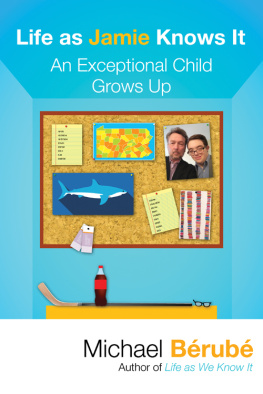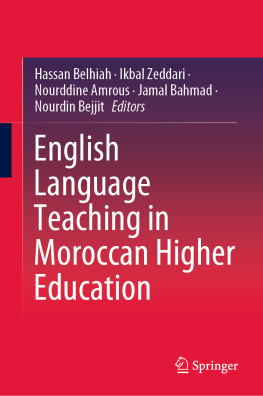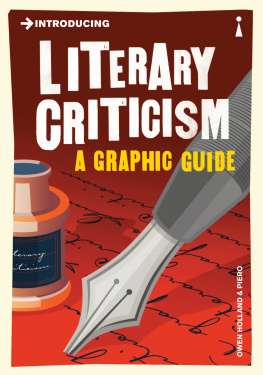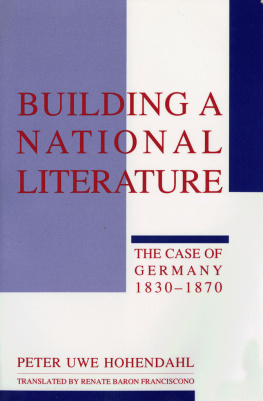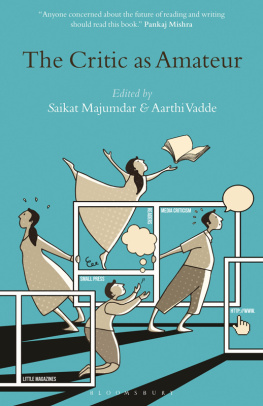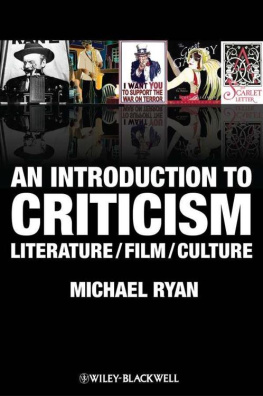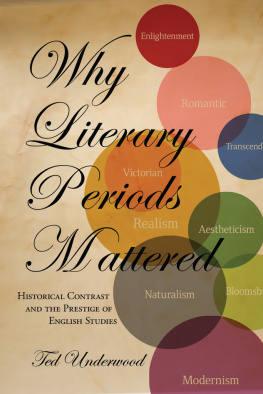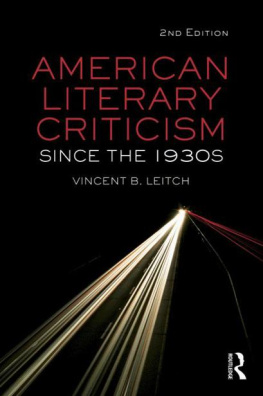Thank you for buying this ebook, published by NYU Press.
Sign up for our e-newsletters to receive information about forthcoming books, special discounts, and more!
Sign Up!
About NYU Press
A publisher of original scholarship since its founding in 1916, New York University Press Produces more than 100 new books each year, with a backlist of 3,000 titles in print. Working across the humanities and social sciences, NYU Press has award-winning lists in sociology, law, cultural and American studies, religion, American history, anthropology, politics, criminology, media and communication, literary studies, and psychology.
THE EMPLOYMENT OF ENGLISH
CULTURAL FRONT
GENERAL EDITOR: MICHAEL BEUB
MANIFESTO OF A TENURED RADICAL
BY GARY NELSON
BAD SUBJECTS: POLITICAL EDUCATION FOR EVERYDAY LIFE
EDITED BY THE BAD SUBJECTS PRODUCTION TEAM
CLAIMING DISABILITY: KNOWLEDGE AND IDENTITY
BY SIMI LINTON
THE EMPLOYMENT OF ENGLISH: THEORY, JOBS, AND THE FUTURE OF LITERARY STUDIES
BY MICHAEL BEUB
THE EMPLOYMENT OF ENGLISH
THEORY, JOBS, AND THE FUTURE OF LITERARY STUDIES
MICHAEL BRUB

NEW YORK UNIVERSITY PRESS
New York and London
1998 by New York University
All rights reserved
Library of Congress Cataloging-in-Publication Data
Brub, Michael, 1961
The employment of English : theory, jobs, and the future of
literary studies / by Michael Brub.
p. cm.(Cultural front)
Includes bibliographical references and index.
ISBN 0-8147-1300-9 (pbk. : acid-free paper).ISBN
0-8147-1301-7 (pbk.: acid-free paper)
1. English philologyStudy and teaching (Higher)Political
aspectsUnitedStates. 2. English literatureHistory and
criticismTheory, etc. 3. English languagePolitical aspects
United States. 4. English teachersEmploymentUnited States.
5. Interdisciplinary approach in education. 6. English philology
Vocational guidance. 7. Languageand cultureUnited States.
I. Title. II. Series: Cultural front (Series)
PE68.U5B481988
820.71173dc21 97-21213
CIP
New York University Press books are printed on acid-free paper,
and their binding materials are chosen for strength and durability.
Manufactured in the United States of America
10 9 8 7 6 5 4 3 2 1
PREFACE
I love literature. I really do. And however much it might shock my colleagues, I believe that some books are better than others, too. Yet this belief of mine complicates my love: I like some books and some writers a great deal, whereas there are other books and other writers I dot care for at all. So now that I think of it, I guess it makes about as much sense to say I love literature as to say Im fond of food. It looks as if Im going to have to start this preface all over again, this time from a coherent premise.
Then again, perhaps the incoherence of the premise should be my premise: how has it come to pass that in the profession of academic literary study, professors of English can publicly profess their love of literature (all of it, presumably) as if they were saying something meaningful? And loving literature as they do, renowned critics renounce criticism: some complain that academic criticism is too esoteric; some complain that contemporary academic criticism is too politicized; some complain that any kind of criticism inevitably positions itself as superior to its object, and is suspect on that basis alone. English departments throw themselves (and the very nation) into turmoil over whether to introduce a required theory course for graduate studentsor whether to jettison the Chaucer-Milton-Shakespeare requirement for undergraduates. Conferences, colloquia, careers are devoted to asking whether literary criticism can have any productive political role in the world; conferences, colloquia, careers are devoted to asking whether literary criticism loves literature. Traditional defenses of the humanities no longer compelassent from students, trustees, or legislators (each for their own reasons more concerned with return on investment than with Remembrance of Things Past), and, accordingly, traditional defenses of the humanities are no longer attempted by junior faculty or graduate students. And year after year, thousands of new Ph.D.s in the field find that amid the myriad debates over the practices and prospects of the profession, there are no teaching jobs for them, regardless of what they think of the function of criticism at the present time.
What does the future look like for departments of English literature? Does academic literary study even have a futureor should it?
This book is about the intellectual and economic status of the profession of literary study at a time when employment and English are two of the most volatile and contested terms in the business. Some of the chapters that follow address the current employment conditions in English departments, by analyzing the professional tensions created by a substantially shrunken job market; other chapters address the social functions of literary study and interpretive theory, in English departments and in the broader culture. All of them were written in response to, and are informed by, the professions competing (and, in some respects, mutually defining) fiscal and intellectual imperativesthe intersection of which, I argue, both constitutes and mystifies the crisis of reproduction in the modern languages. The Employment of English is thus divided, as its structure suggests, between attention to employment in English and the task of employing English (or the knowledges produced in English) outside the academy. I do not suggest any easy or predictable connection between these two senses of employment: I do not argue that the job market will revive in English if every member of the MIA agrees to preface his or her book with the credo I love literature, I really do, nor do I argue that the survival (or demise) of literary study depends on the utility of cultural studies to the professional-managerial class. But I do think literary and cultural studies can serve useful and even politically progressive ends, and I do think their ability to serve those ends is predicated in part on the economic and intellectual health of the profession. If the essays in this book prove moderately convincing, then, I hope that they will call readers to rethink how Englishand English teacherscan best be employed.
Janet Lyon is my coauthor in Champaign for being such a wonderful place to work when youve got a whole day to yourself. Last but first, Nicholas and James, the two most astonishing and wonderful children I know, have kept me going and buoyed my spirits in innumerable ways I can neither tally nor repay. This book is dedicated to them, and to our Boys Summerof 96, with all my love.
Portions of this book have been previously published. A section of was published on-line in the second issue of ebr, the electronic book review, at http://www.altx.com/ebr (1996). I am grateful to these journals, publishers, and websites for permission to reprint, refine, improve, and redact my work here.
Champaign, Illinois
April 1997
I
EMPLOYMENT IN ENGLISH
1
CULTURAL STUDIES AND CULTURAL CAPITAL
The desire called Cultural Studies is perhaps best approached politically and socially, as the project to constitute a historic bloc, rather than theoretically, as the floor plan for a new discipline.
Next page

